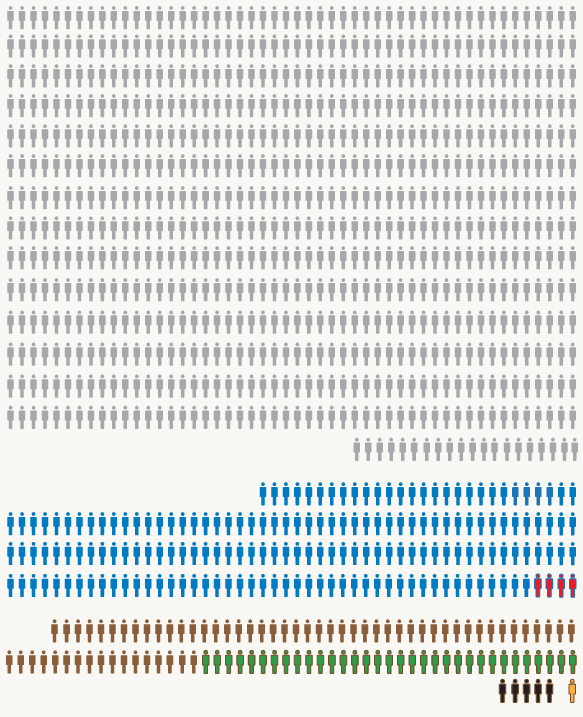Prostate Cancer—1000-Person Tool
PDF Version
The Canadian Task Force on Preventive Health Care recommends against screening for prostate cancer with the PSA test
- The CTFPHC found that the potential small benefit from PSA screening is outweighed by the potential significant harms of the screening and associated follow-up treatment.
- Men should understand that PSA screening may result in additional testing if the PSA level is raised.
- To save one life we would need to diagnose an additional 27 men with prostate cancer
Results of screening 1,000 men with the PSA test

- 720 men will have a negative PSA test.
- 178 men with a positive PSA in whom follow-up testing does not identify prostate cancer.
- 4 of these 178 will experience biopsy complications such as infection and bleeding severe enough to require hospitalization.
- 102 men will be diagnosed with prostate cancer.
- 33 of these 102 prostate cancers would not have caused illness or death. Because of uncertainty about whether their cancer will progress, most men will choose treatment and may experience complications of treatment.
- 5 men will die from prostate cancer despite undergoing PSA screening.
- 1 man will escape death from prostate cancer because he underwent PSA screening.
What are my risks if I don’t get screened?
- Among men who are screened with the PSA test, the risk of dying from prostate cancer is 5 in 1,000
- Among men who are not screened with the PSA test, the risk of dying from prostate cancer is 6 in 1,000
Complications of treatment for prostate cancer
For every 1,000 men who receive treatment for prostate cancer:
- 114–214 will have short-term complications such as infections, additional surgeries, and blood transfusions
- 127–442 will experience long-term erectile dysfunction
- up to 178 will experience urinary incontinence
- 4–5 will die from complications of prostate cancer treatment
Note
Statistics for benefits and harms were calculated from the European Randomized Study of Screening for Prostate Cancer (ERSPC).
